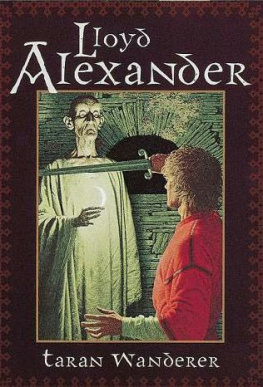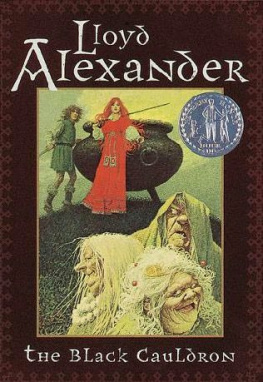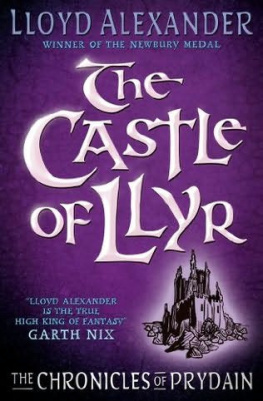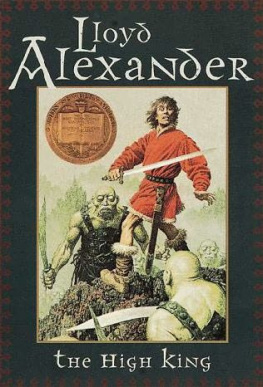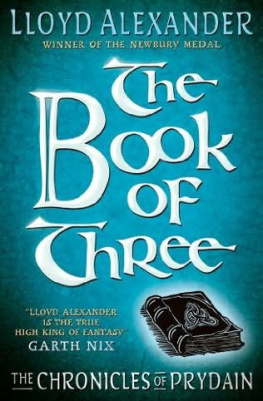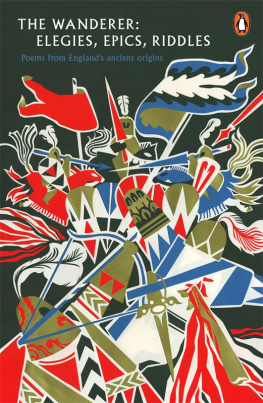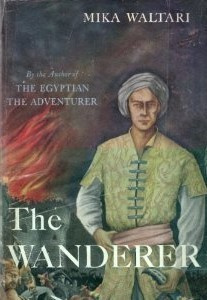Annotation
The Newbery-winning fantasy series now available in gorgeous new paperback editions!
Since The Book of Three was first published in 1964, young readers have been enthralled by the adventures of Taran the Assistant Pig-Keeper and his quest to become a hero. Taran is joined by an engaging cast of characters that includes Eilonwy, the strong-willed and sharp-tongued princess; Fflewddur Fflam, the hyperbole-prone bard; the ever-faithful Gurgi; and the curmudgeonly Doli--all of whom have become involved in an epic struggle between good and evil that shapes the fate of the legendary land of Prydain. Released over a period of five years, Lloyd Alexander's beautifully written tales not only captured children's imaginations but also garnered the highest critical praise.
The Black Cauldron was a Newbery Honor Book, and the final volume in the chronicles, The High King, crowned the series by winning the Newbery Medal for "the most distinguished contribution to American literature for children."
Henry Holt is proud to present this classic series in a new, redesigned paperback format. The jackets feature stunning art by acclaimed fantasy artist David Wyatt, giving the books a fresh look for today's generation of young fantasy lovers. The companion book of short stories, The Foundling is also available in paperback at this time.
In their more than thirty years in print, the Chronicles of Prydain have become the standard of excellence in fantasy literature for children.
Taran Wanderer
The fourth book in the Chronicles of Prydain series
A novel by Lloyd Alexander
Author's Note
THIS FOURTH CHRONICLE of Prydain begins as a gallant, high-hearted quest, which soon becomes more intense and perhaps more essentially heroic than the preceding adventures. For here, Taran comes to grips with a merciless opponent: the truth about himself. No longer as Taran Assistant Pig-Keeper but as Taran Wanderer, he learns to reshape his life out of his own inner resources; for there must not only be an end to childhood but also a beginning of manhood. This is meant to be a serious tale-- in the way that all humor is serious and all fantasy true-- and if there is no conventionally happy ending in fairy-tale terms, there is still a most hopeful ending in human terms.
This does not imply any less humor or variety in the story. There is possibly more, as Taran's journey takes him from one end of Prydain to the other, from the Marshes of Morva to the Free Commots. However, instead of a clash of battle hosts, the underlying conflict between good and evil is stated in individual encounters: King Smoit, boisterous with being alive; Morda, deathlike, scornful of all humanity; Dorath the amoral; Annlaw Clay-Shaper the creator; Craddoc, in whose desolate valley Taran suffers the anguish of shame. The Princess Eilonwy, alas, is present only in memory, though it is hoped readers will miss her as much as Taran does-- and the author himself, for that matter.
While certain inhabitants of Prydain were born of Welsh legend, in Taran Wanderer they have acquired characteristics more universal than specific. Morda's life secret, for example, is familiar in many mythologies. Orddu, Orwen, and Orgoch have appeared in other guises (as might well be expected of them): the Three Norns, the Moirae, the Triple Goddess, and very likely some other transformations they decline to admit. Prydain, of course, is part-memory and part-dream, the balance favoring the latter.
The Companions have gained many more friends than I had ever hoped, who are willing to follow these tales both as self-contained chronicles and as part of a larger pattern; and to them I promise in time all questions will be answered and all secrets revealed. To some friends of the Companions (especially Gypsy Reeves) I address a plea for clemency; to others, my sincere thanks for their hard but invaluable labor, insight, and encouragement when the straits seemed even more dire to an author than to an Assistant Pig-Keeper; and to all, my warmest affection.
-L.A.
Chapter 1
Who am I?
IT WAS FULL SPRINGTIME, with promise of the richest summer the farm had ever seen. The orchard was white with fragrant blossoms; the newly planted fields lay light as green mist. Yet the sights and scents gave Taran little joy. To him, Caer Dallben was empty. Though he helped Coll with the weeding and cultivating, and tended the white pig, Hen Wen, with as much care as ever, he went about his tasks distractedly. One thought alone was in his mind.
"Now, my boy," Coll said good-naturedly, as they finished the morning's milking, "I've seen you restless as a wolf on a tether ever since you came back from the Isle of Mona. Pine for the Princess Eilonwy if you must, but don't upset the milk pail." The stout old warrior clapped Taran on the shoulder. "Come, cheer up. I'll teach you the high secrets of planting turnips. Or raising cabbages. Or whatever you might want to know."
Taran shook his head. "What I would know only Dallben can tell me."
"Take my counsel, then," said Coll. "Trouble Dallben with none of your questions. His thoughts are on deeper matter. Have patience and bide your time."
Taran rose to his feet. "I can bide my time no longer. It is in my heart to speak with him now."
"Have a care," warned Coll as Taran strode to the door of the shed. "His disposition rubs a little thin!"
Taran made his way through the cluster of low-roofed farm buildings. In the cottage, at the hearthside, a black-robed woman crouched and tended the cooking fire. She did not raise her head or speak. It was Achren. Thwarted in her scheme to regain her ancient power, from the ruined Castle of Llyr the once-haughty Queen had accepted the refuge Dallben offered; though, by her own choice, she who had long ago ruled Prydain toiled now at the tasks Eilonwy had done before departing for Mona, and at day's end silently vanished to her pallet of straw in the granary.
Before Dallben's chamber Taran paused uneasily, then rapped quickly on the door. Entering at the enchanter's command, he found Dallben bent over The Book of Three, which lay open on the cluttered table. Much as he longed for a glimpse at even one page of this secret volume, Taran kept his distance from it. Once, in boyhood, he had dared touch the ancient, leather-bound tome, and his fingers smarted again at the memory.
"I never cease to wonder," Dallben testily remarked, closing The Book of Three and glancing at Taran, "that the young, with all their pride of strength, should find their own concerns such a weighty burden they must be shared with the old. Whereas, the old"-- he waved a frail, bony hand. "But no matter, no matter. For the sake of my temper I hope your purpose in interrupting me is an excellent one.
"First, before you ask," Dallben went on, "I assure you the Princess Eilonwy is well and no more unhappy than any pretty young madcap obliged to turn a hand to sewing instead of sword-play. Second, you are as aware as I am that Kaw has not yet returned. By now, I daresay he has borne my potion to Glew's cavern, and the giant-by-accident who troubled you so much on Mona will shrink to the small stature he once had. But you also know your crow for a rascal and one to linger wherever he finds sport. Finally, an Assistant Pig-Keeper should have tasks enough to busy himself outdoors. What, then, brings you here?"
"One thing only," Taran said. "All that I have I owe to your kindness. You have given me a home and a name, and let me live as a son in your household. Yet who am I, in truth? Who are my parents? You have taught me much, but kept this always from me."
"Since it has been always thus," Dallben replied, "why should it trouble you now?"

